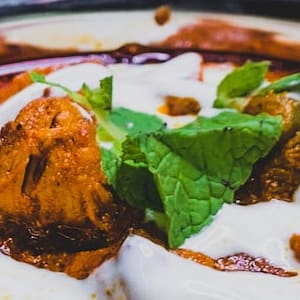stew in one’s juices: Idiom Meaning and Origin
What does ‘stew in one's juices’ mean?
The idiom "stew in one's juices" means to be left alone with one's thoughts or feelings, usually in a state of anger or frustration.

Idiom Explorer
The idiom "stuck on" means being infatuated or obsessed with someone or something, unable to let go or move on. It implies a deep emotional attachment that is difficult to break.
The idiom "stuck in the mud" means being in a difficult or stagnant situation, unable to make progress or move forward.
The idiom "spill one's guts" means to confess or reveal something very personal or private, often in an emotional or dramatic way.
The idiom "spill juice" means to reveal or disclose secret or confidential information unintentionally or carelessly, potentially causing harm or damage.
The idiom "one's heart in one's mouth" means to be extremely anxious or fearful.
The idiom "not leave one's thoughts" means that something or someone is constantly on a person's mind, and they cannot stop thinking about it or them. It implies a strong and persistent presence in one's thoughts or emotions.
The idiom "lose one's cool" means to become angry, agitated, or lose control of one's emotions in a situation.
The idiom "keep one's cool" means to remain calm and composed in a difficult or stressful situation.
The idiom "in one's head" means to have a thought, idea, or plan solely within the mind without expressing or sharing it with others.
The idiom "in one's cups" refers to being drunk or intoxicated. It implies that someone has consumed so much alcohol that they are influenced or affected by it. The phrase is often used to describe someone who is behaving differently or experiencing the effects of excessive drinking.
FAIL
The idiom "stew in one's juices" has a straightforward meaning. It refers to a situation where someone suffers the consequences of their own actions without any external interference or assistance. This idiom conveys a sense of being trapped or stuck in a difficult situation, with no easy way out.
The meaning of this idiom can be further understood by exploring how it relates to other idioms. For example, the phrase "get one's juices flowing" is similar to "stew in one's juices" because it also involves a sense of internal motivation or inspiration. When someone's juices are flowing, they are energized and excited, ready to tackle a task or project. Similarly, when someone stews in their juices, they are left to marinate in their own consequences, feeling the full impact of their actions.
Another related idiom is "not leave one's thoughts." This phrase emphasizes the idea that something is constantly on a person's mind, not allowing them to forget or ignore it. When someone stews in their juices, the consequences of their actions are constantly present in their thoughts, creating a sense of unease or regret. It can be challenging to move on from a situation when it continues to linger in one's thoughts, just like a stew simmering on the stove.
The final idiom related to "stew in one's juices" is "in a right state." This expression is used to describe someone who is in a state of distress, anxiety, or confusion. When someone stews in their juices, they may find themselves in a right state as they grapple with the consequences of their actions. The frustration and regret associated with stewing in one's juices can create a turmoil of emotions, leaving a person feeling overwhelmed and unsure of how to proceed.
The origins of the idiom "stew in one's juices" can be traced back to the word "stew," which originally referred to a cooking process involving simmering food slowly in a closed container. Over time, "stew" acquired a metaphorical meaning of being enclosed or confined in a particular situation or state. The addition of "in one's juices" to the idiom further enhances its figurative meaning by suggesting the individual is left to marinate or soak in the consequences of their actions, similar to a piece of meat left to simmer and absorb the flavors of a stew.
This idiom is primarily used in informal contexts and is often employed to convey frustration, regret, or self-inflicted suffering. It serves as a vivid expression that captures the notion of being trapped in a situation of one's own making. The imagery of stewing in one's juices serves as a reminder that our actions have consequences and we must be prepared to face them.
While the meaning of this idiom is well established, its usage may vary slightly depending on the context and specific situation being described. It is important to consider the nuances and connotations of individual words within the idiom to fully understand its intended message. By delving into the origins and imagery of this idiom, we can gain a deeper understanding of its meaning and appreciate its expressive power.
Overall, the idiom "stew in one's juices" encapsulates the idea of being left to suffer the consequences of one's own actions or decisions. It is a vivid and evocative phrase that conveys a sense of being trapped or stuck in a difficult situation. By exploring how it relates to other idioms such as "get one's juices flowing," "not leave one's thoughts," and "in a right state," we can further understand its nuances and implications. Our actions have consequences, and when we stew in our juices, we are left to face them without any external assistance or interference.
Example usage
Examples:
- After getting into a heated argument with his boss, John was left to stew in his own juices as he mulled over the conversation and his feelings of frustration.
- Instead of seeking help or advice, Sarah decided to stew in her own juices and try to figure out a solution to her problem on her own.
- Feeling betrayed by his best friend, Mike chose to stew in his juices rather than confront his friend about the issue.
Analysis:
The idiom "stew in one's juices" is used to describe a situation where someone is left alone to brood or dwell on their thoughts or emotions. It implies a state of being emotionally or mentally absorbed in one's own thoughts or feelings, often in a negative or frustrated manner.
This idiom is usually used to express the idea that someone is refusing to address or resolve a situation, instead choosing to remain in a state of introspection or emotional turmoil. It suggests that the individual is marinating in their own thoughts, emotions, or frustrations.
The idiom can be applied to various situations, such as an argument or disagreement where one person is left to stew in their own thoughts or emotions without resolution. It can also be used when someone decides to withdraw from seeking help or confront others about a problem, instead choosing to stew in their own thoughts and find a solution on their own.
Overall, the idiom "stew in one's juices" conveys the idea of internal reflection or rumination without taking action or seeking resolution.
More "Emotions" idioms



